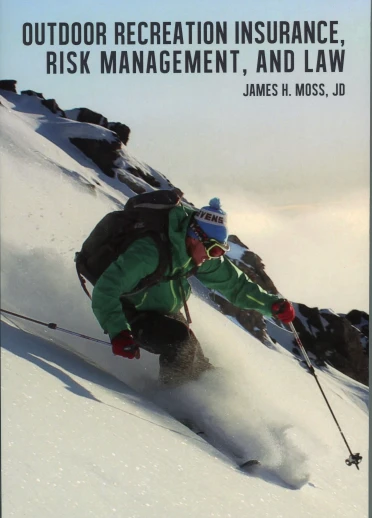Great Colorado Sun article about skiing and board injuries over the past five years
Posted: April 15, 2024 Filed under: Ski Area, Skiing / Snow Boarding | Tags: Collisions, Law Enforcement, Ski Patrol, Skier Collisions, skier v. skier Leave a commentHowever, there is an inference from the interviews that is incorrect. The ski patrol is not trained, licensed, or allowed to chase down people in skier v. skier collisions.
Analyzing 5 years of injuries, crashes and hit-and-runs at Colorado ski areas by Jason Blevins
Skier v. Skier collision is the term used to describe any collision between a skier, snowboarder, ski bike, or any other form of sliding down the slopes at a ski area. That term has grown in use over the past twenty years because there are more skier v. skier collisions.
It has also taken on more prominence in our lives and the media because the plaintiff’s lawyers who used to sue ski areas for injuries now sue the negligent party in a skier v. skier collision. Most ski areas are protected by some form of ski area safety statute and most use a release. Those attorneys who used to sue ski areas are now suing skiers. You can tell from the billboards on, I-70 leaving the mountains. They used to say if you had been injured at a ski area to call an 800 number. Now they ask if you were hit at a ski area.
There is a quote in the article that can be misleading if you do not understand the entire legal complex around collision injuries occurring on the mountain.
The woman was describing what happened when she went to the ski patrol after her friend had been hit by a snowboarder.
She snapped a photo and brought it into the ski patrol headquarters at the top of the lift, wondering if maybe they would want to find the man and talk to him about the accident.
“They were completely indifferent,” she says. “I was like the weird old lady.”
I can tell you they were not indifferent. They just did not want to go to jail or be sued for helping. Probably they have been told to record the information at the scene from the witnesses, including the skier causing the collision if that person is still around.
Why don’t they do more?
- They are not law enforcement. They do not have the authority, without seeing the collision, to do anything else.
- If they did find the alleged perpetrator, and they held that person for law enforcement to arrive, they could be charged with false imprisonment or sued for it. False imprisonment does not require bars and a door; it only means you restricted someone’s movement without the right to do so.
- And who would you detain someone? If you touch the person, you are committing a battery—both a civil and criminal act.
Everything the patroller, does that could result in a lawsuit against the patroller will result in a lawsuit against the ski resort he was working or volunteering at.
The article also looked into why people who are injured or more specifically their friends or family members can’t get that information from the ski patrol if they collect it.
The police are required to get a subpoena to collect information from non-parties in a criminal investigation. Just watch any cop show on TV, and you’ll learn that. Friends and family are no different from law enforcement to some extent. There must also be a nexus between the person asking and the information they want to the victim.
And those are not the only legal issues involved. HIPPA and medical confidentially laws control who has access to medical information. Just because your son or daughter was injured in a collision, if they are over the age of 18 you as a sibling, parent or friend cannot legally access that information without written consent from the person whose information you are requesting; The injured party.
There are also limits on how much information you can find on ski area injuries. If the incident is not reported to the Colorado Department of Public Health and Environment — or CDPHE or U.S. National Trauma Data Bank can’t be found to research. Twenty years ago, broken wrists were not reported. Yet snowboarders at one resort were suffering a broken wrist for every 1000 skiers and boarders at the resort. So, unless the injury falls into the class that is reported, any article is going to lack a total look at what is happening.
The article is good, but it is limited in what can be collected, more by circumstances than anything else.
What is the problem is this belief that the Ski Patrol is the sheriff on the mountain. They are not; they are not trained, and they do not have the legal authority to do anything except collect information in a skier v. skier collision.
They do have the authority to take your pass away for violating ski area rules. However, if you read your season pass or lift ticket, the ski area owns both the pass and ticket and you are using them with their permission. The ski patrol is just the lucky one to yank the permission.
Think about it, you are injured and lying in the snow. Who do you want to show up, a friendly ski patroller trained in first aid and how to get you off the slopes or a deputy asking you questions about who hit you? Later, after you are home and feeling better you might wish it had been a deputy, but right then you are looking for that cross on the back of a jacket and a reassuring look from a patroller.
What can you do?
Skiing and boarding have changed. No longer are you able to take off from the lift and bomb the slope? Ski Areas are two crowded; few skiers take lessons anymore, and the equipment has evolved so that learning to ski takes less time and patience than ever before.
That lack of time in learning to ski, or great instruction from ski instructors also means a lack of experience for a lot of people on the slopes. The old saying was it skiing was easier to learn, usually in one day. Snowboarding was harder to learn, but by day three, you could be headed to the Olympics.
At the same time, as a skier or boarder, you are responsible for yourself. Skiing and Boarding means knowing where you are and who is around you. If you are skiing on the edge of a run, you better include the trees as part of your scan area.
Always stop in a safe place, which nowadays is harder to find. Never stop under a rise, lip, or jump. Make sure you can be seen when you stop and stop so you can look uphill for any problems. If you see someone coming, be prepared to get out of the way.
Take a half-day lesson to make sure you know what you are doing, where you should be doing it, what to do if you screw up, and how to survive on the slopes.
Resorts are worried about the issues, finally, and are trying to figure out what that means to them and how they can deal with it.
 Jim Moss |
Jim Moss is an attorney specializing in the legal issues of the outdoor recreation community. He represents guides, guide services, and outfitters both as businesses and individuals and the products they use for their business. He has defended Mt. Everest guide services, summer camps, climbing rope manufacturers, avalanche beacon manufacturers, and many more manufacturers and outdoor industries. Contact Jim at Jim@Rec-Law.us |

Outdoor Recreation Insurance, Risk Management, and Law
Jim is the author or co-author of six books about legal issues in the outdoor recreation world; the latest is
Outdoor Recreation Insurance, Risk Management, and Law.
To see Jim’s complete bio go here and to see his CV you can find it here. To find out the purpose of this website go here.
G-YQ06K3L262
What do you think? Leave a comment.
If you like this let your friends know or post it on FB, Twitter or LinkedIn
 |
 |
 Threads Logo |
 X (formerly known as Twitter) |
 Blue Sky |
 Mastodon |
If you are interested in having me write your release, fill out this Information Form and Contract and send it to me.
Author: Outdoor Recreation Insurance, Risk Management, and Law To Purchase Go Here:
Email: Jim@Rec-Law.US
By Recreation Law Rec-law@recreation-law.com James H. Moss
@2008-2024 Summit Magic Publishing, LLC
By Recreation Law Rec-law@recreation-law.com James H. Moss
@2024 Summit Magic Publishing, LLC
#AdventureTourism, #AdventureTravelLaw, #AdventureTravelLawyer, #AttorneyatLaw, #Backpacking, #BicyclingLaw, #Camps, #ChallengeCourse, #ChallengeCourseLaw, #ChallengeCourseLawyer, #CyclingLaw, #FitnessLaw, #FitnessLawyer, #Hiking, #HumanPowered, #HumanPoweredRecreation, #IceClimbing, #JamesHMoss, #JimMoss, #Law, #Mountaineering, #Negligence, #OutdoorLaw, #OutdoorRecreationLaw, #OutsideLaw, #OutsideLawyer, #RecLaw, #Rec-Law, #RecLawBlog, #Rec-LawBlog, #RecLawyer, #RecreationalLawyer, #RecreationLaw, #RecreationLawBlog, #RecreationLawcom, #Recreation-Lawcom, #Recreation-Law.com, #RiskManagement, #RockClimbing, #RockClimbingLawyer, #RopesCourse, #RopesCourseLawyer, #SkiAreas, #Skiing, #SkiLaw, #Snowboarding, #SummerCamp, #Tourism, #TravelLaw, #YouthCamps, #ZipLineLawyer,


